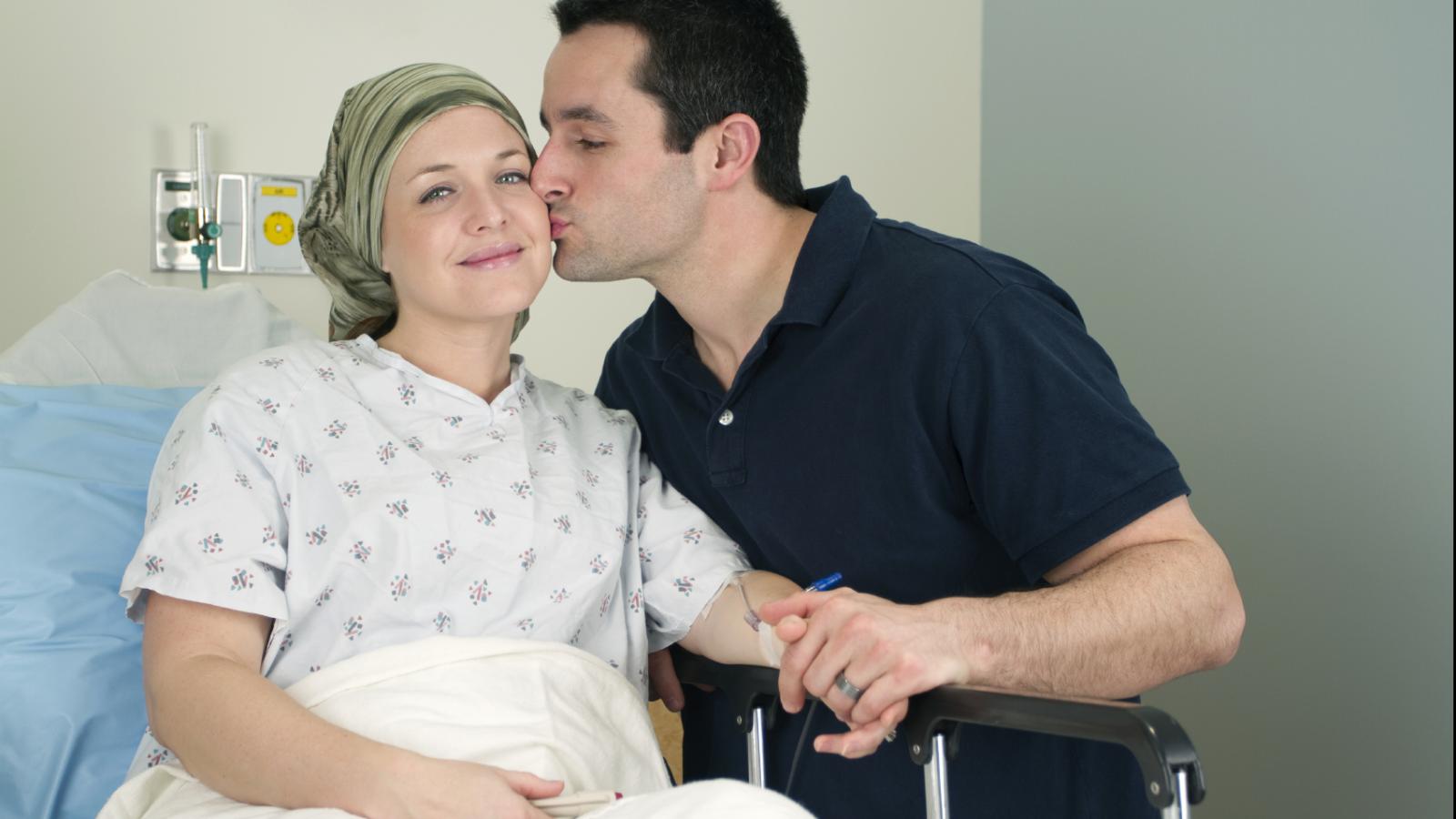Fertility issues for women and people assigned female at birth

On this page:
Fertility refers you being able to get pregnant and give birth to a baby. Some cancer treatments can damage the eggs in your ovaries or affect the hormones that make your body release eggs and get ready for pregnancy. For example:
- Radiotherapy to the pelvic area can damage some or all of your eggs.
- Hormone therapy and some other cancer drugs can lead to a temporary or permanent menopause.
- Chemotherapy drugs can damage your eggs.
- Some types of surgery can impact your fertility. For example, if you have your womb removed (hysterectomy) or ovaries removed.
If your hormone levels or eggs are affected by treatment, you may have difficulty getting pregnant or it may not be possible for you to get pregnant.
Short-term infertility
Your periods may become irregular or stop during treatment with chemotherapy or other cancer treatments. Chemotherapy can also reduce the number of eggs you have, which can cause temporary infertility while receiving the treatment and for some time after. The younger you are, the more likely your periods will return to normal after treatment and you can get pregnant naturally.
Ovarian transposition
Radiotherapy to your pelvic area is likely to affect your ovaries. You may be suitable for a procedure to move your ovaries away from the treatment area. This is called ovarian transposition.
Menopause
Unfortunately, the closer you are to your natural menopause, the higher the risk of infertility. Some chemotherapy drugs may start your menopause early, affecting your ability to get pregnant. It is important to discuss this with your doctor as they may be able to give you a type of hormonal treatment during your chemotherapy that can help protect the ovaries.
Avoiding pregnancy
You should not become pregnant during cancer treatment and for a time after. This is because some treatments can harm the developing baby. There can also be a risk of miscarriage.
You may not know if you are fertile because your periods may stop during treatment. However, it may still be possible for you to become pregnant. Also, side-effects like vomiting and diarrhoea can affect the way your contraceptive pill works.
As a result, you should use a reliable method of contraception throughout treatment and for some time afterwards. You may have to avoid contraception that contains hormones, so it is important that you discuss all of your options with your medical team.
Freezing eggs
If there is a risk that your treatment will cause permanent infertility, you may have the option of freezing your eggs before treatment begins. Egg freezing is not suitable for everybody - it will depend on the type and location of your cancer, your age and medical history.
If you want to have children in the future, discuss this option as early as possible with your cancer specialist before treatment.
There may not be time to collect and freeze eggs if your consultant advises you that treatment needs to start as soon as possible. Your health will take priority over egg freezing.
If egg freezing might be an option for you, your consultant can refer you to SIMS IVF Clinic.
You may be offered counselling and you can ask questions and discuss any concerns you may have.
Who’s suitable? You must be over 18, be able to give informed consent and be referred by your cancer specialist (oncologist).
How are eggs frozen?
Your ovaries will need to be stimulated to produce several eggs for storage. There are different ways of doing this and your doctor will decide which option is best for you and when you can start. This will sometimes depend on your menstrual cycle.
The aim will be to collect eggs within three weeks. Generally, you will have daily injections to stimulate egg production and be monitored for about 12 days, followed by a procedure to remove the eggs.
It may happen that no eggs develop or that they are not suitable for freezing. This will all be explained to you.
If the eggs are successfully collected, they are stored for between 5 and 10 years or until you are 45. It may be possible to extend this period in certain circumstances. Contact SIMS IVF for more details.
How much does egg freezing cost?
Collecting and storing eggs at SIMS IVF is currently free for all cancer patients living in Ireland. It is funded by the clinic and the HSE. However before your appointment, check that this is still the case. You can also use other fertility clinics for egg freezing, but there will be a fee.
Trying to conceive?
You should talk to your oncologist if you want to use your frozen eggs. They can tell you if it is safe for you to try to get pregnant. You will then need to contact SIMS IVF to discuss your options.
When ready, your frozen eggs can be thawed and fertilised in the laboratory. This is done using a form of in-vitro fertilisation (IVF) called intracytoplasmic sperm injection (ICSI). The fertilised eggs will then be put into your uterus in the hope of a pregnancy. Before this happens, you will be given tablets to build up the lining of your womb.
Where can I be treated?
You can decide to have this treatment at SIMS IVF. If you decide to be treated elsewhere, it is possible for the frozen eggs to be transferred to a clinic of your choice. However, your clinic must agree to it beforehand and the transfer is done at your own risk.
Where can I get more information?
If you would like more information about egg freezing, talk to your doctor or nurse. You can also call our Support Line on 1800 200 700. Your GP can give you advice as well.
For more information
Phone
1800 200 700





